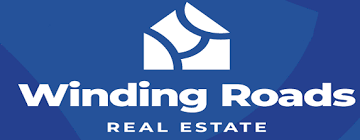Top 10 mistakes sellers make when choosing a realtor

Selling a home should be treated like any other business transaction, but too often, sellers make emotional or impulsive decisions that cost them time and money. Selecting the right Realtor to market your property and negotiate the sale is the most critical step in the process. Avoid these common mistakes to ensure a smooth and successful sale:
1. "My friend (or family member) sells real estate."
Friendship alone isn’t enough to guarantee professional competence. Choose your Realtor as carefully as you would select a doctor, lawyer, or accountant. A true friend will understand that this is a business decision and will present their credentials to compete for your listing. Moreover, if challenges arise during the sale, mixing business with personal relationships can strain friendships or family ties.
2. "Your presentation sounds good. I'll list right now."
Don’t make an impulsive decision based on a single presentation. Interview multiple agents and weigh the pros and cons of each. Since listing contracts bind you to an agent for a set period, a rushed decision can lead to dissatisfaction with little recourse to switch agents later.
3. "You're the only agent who agrees with my selling price."
Beware of agents who inflate the suggested listing price just to secure your business—this tactic is called “buying a listing.” Overpricing a property often backfires.
- A new listing receives the most attention when first introduced. If overpriced, fewer agents will show it to their buyers.
- When the price is eventually reduced, the listing is seen as “stale,” and buyers may assume you’re desperate, leading to lower offers.
- Overpricing makes competing homes look like better deals, helping sell those homes—not yours.
Price your home realistically from the start to maximize interest and value.
4. "I don't need references. I'm a good judge of character."
A snap judgment isn’t enough. Always check references from recent clients to assess the agent’s competence. Find out how previous sellers felt about the process and whether the agent delivered results.
Experience is important, but enthusiasm and effort can sometimes outweigh years in the business. Newer agents often make up for their lack of experience with dedication and hard work.
5. "I'm going to list with the agent who has the lowest commission."
While saving on commission might sound appealing, it often results in less effort from the agent.
- Agents and companies invest their own money in marketing and advertising your home. A lower commission provides less incentive to allocate resources for promotion.
- A reduced commission also affects the buyer’s agent. If the buyer’s agent receives a smaller share, they may prioritize showing other properties with higher commissions.
- Strong negotiating skills are essential in a Realtor. If an agent can’t negotiate their own commission effectively, how will they handle negotiations for your sale?
6. "The agent is what counts—not the company."
While individual agents are important, large, well-established companies offer several advantages:
- Extended office hours ensure someone is always available to respond to inquiries about your home.
- Larger advertising budgets mean greater exposure for your property.
- More agents in the office often means a larger “in-house sales team” working to sell your home.
Larger companies also provide ongoing education, ensuring their agents are well-informed and equipped to handle changes in the market.
7. "All Realtors passed the same test, so they must know the same things."
The real estate profession is constantly evolving, and top agents stay ahead through continuing education and specialized certifications. Look for agents who go beyond the minimum requirements and have professional designations to demonstrate their expertise.
8. "This agent will hold an open house every week."
While open houses can occasionally lead to a sale, they’re primarily a way for agents to meet potential clients. The person who buys your home is more likely to discover it through online listings or other marketing efforts. Good agents focus on strategies that directly target qualified buyers and collaborate with other agents to maximize exposure.
9. "I want an agent who lives in my neighborhood."
Knowledge of the local market doesn’t require living in the immediate area. A good agent will conduct thorough research to understand recent sales, school districts, and community amenities. Convenience shouldn’t be your primary reason for selecting an agent.
10. "This agent sold more homes last year than anyone else."
Volume isn’t everything. An agent’s track record should also include:
- The percentage of listings that sold without repeated price reductions.
- Average time on the market for their listings.
- How smoothly they handled the sales process, including communication and problem-solving.
Quality matters more than quantity. The best agent is one who provides exceptional service, markets your property effectively, and negotiates the best possible terms.
Conclusion
The right agent will market your property effectively, negotiate favorable terms, and communicate clearly to ensure a smooth process. By avoiding these common mistakes, you’ll increase your chances of a successful and stress-free home sale.









